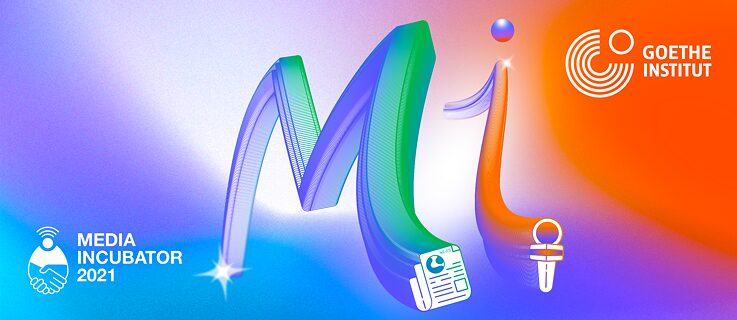Media Incubator: about the project
Minorities are either poorly reported in the media or not all. Whereas Western Europe is becoming increasingly diverse and more and more people with an immigration background are establishing themselves in journalism, disadvantaged minorities and their viewpoints in the Balkan countries are hardly visible.
This applies to the most significant ethnic minority, the Roma, and women from underprivileged social classes. They have no voice and are marginalised and discriminated against. The majority forms its opinions based on its own reporting. Those who are reported on usually do not have their say in the matter. The results are racism and a public attitude marked by hate and contempt for others, under which not only the directly affected suffer but also society in general.
In Bosnia and Herzegovina, Bulgaria, Croatia, North Macedonia and Rumania, the Goethe Institute, in collaboration with its local partners, wants to support socially conscious, responsible journalism with the project Media Incubator. The Media Incubator project is a multi-year training programme that supports students and aspiring journalists who wish to focus on the genres of social reporting and the topics of fighting poverty, equal opportunities and minorities.
In Sarajevo, the Goethe Institute, together with the university's journalism faculty, is developing a certified course intended to sensitise students to social themes. In Skopje, the Goethe Institute is working with the Balkan Institute for regional Cooperation to establish a training programme for students from different ethnic groups.
The Goethe Institute Croatia is creating an independent 'Redakcija', a newsroom focused on poverty under the leadership of experienced journalist Barbara Matejčić. Media Incubator Rumania will concentrate on giving a platform to women from disadvantaged social classes where they can freely express their opinions and make their first journalistic experiences.
And in Bulgaria, the Goethe Institute is dealing with 'gipsy' figures and motifs that have shaped images and patterns of thought since the rise of audio-visual media.
Stories will emerge that do not condemn but report without prejudice about the strangers in one's own and neighbouring countries. The stories you will read and see here on this website aim to arouse curiosity and change minds.
